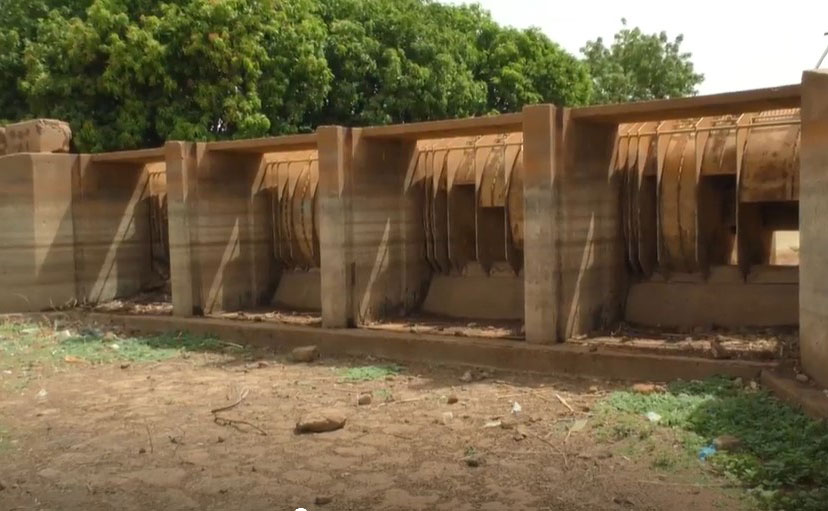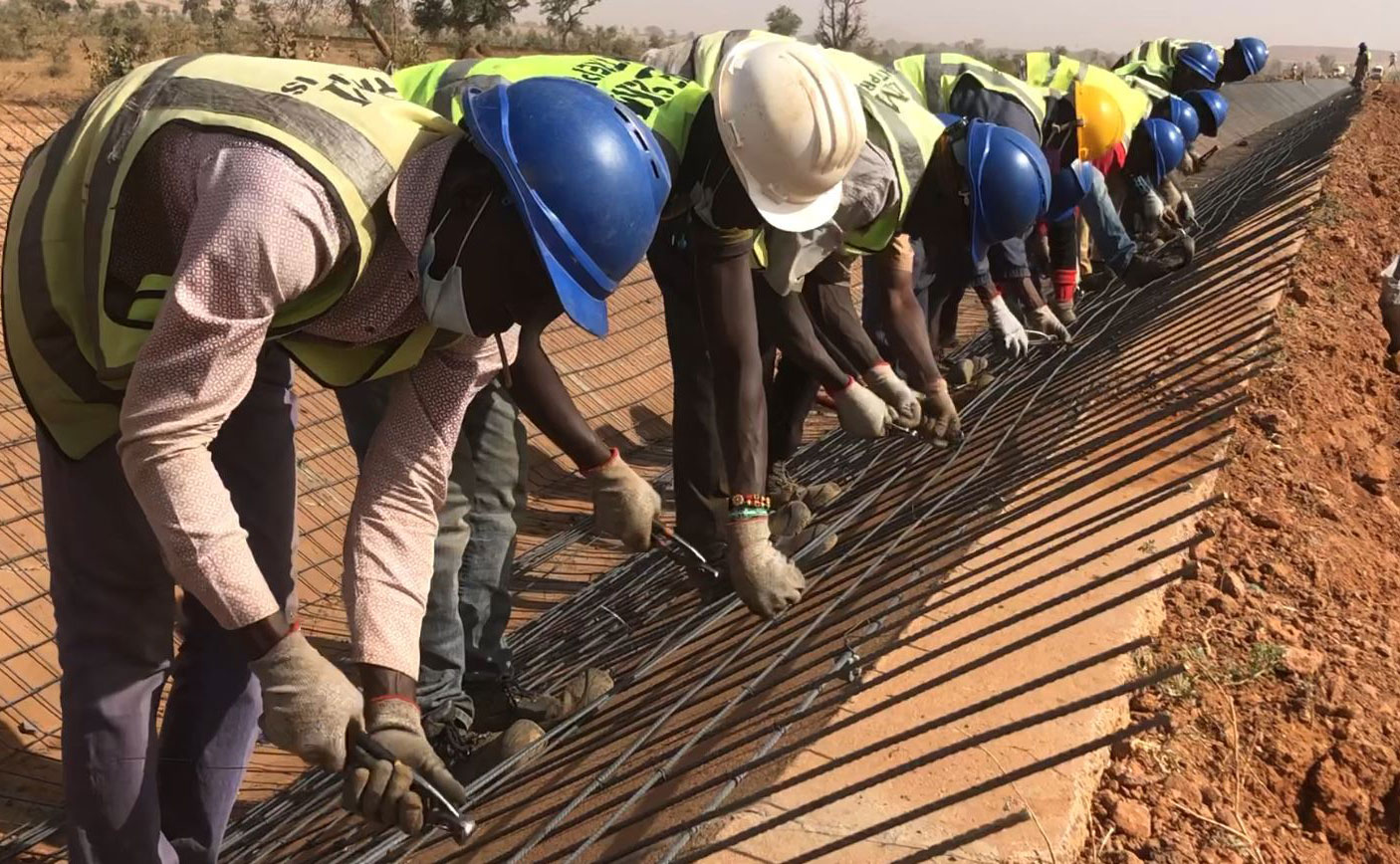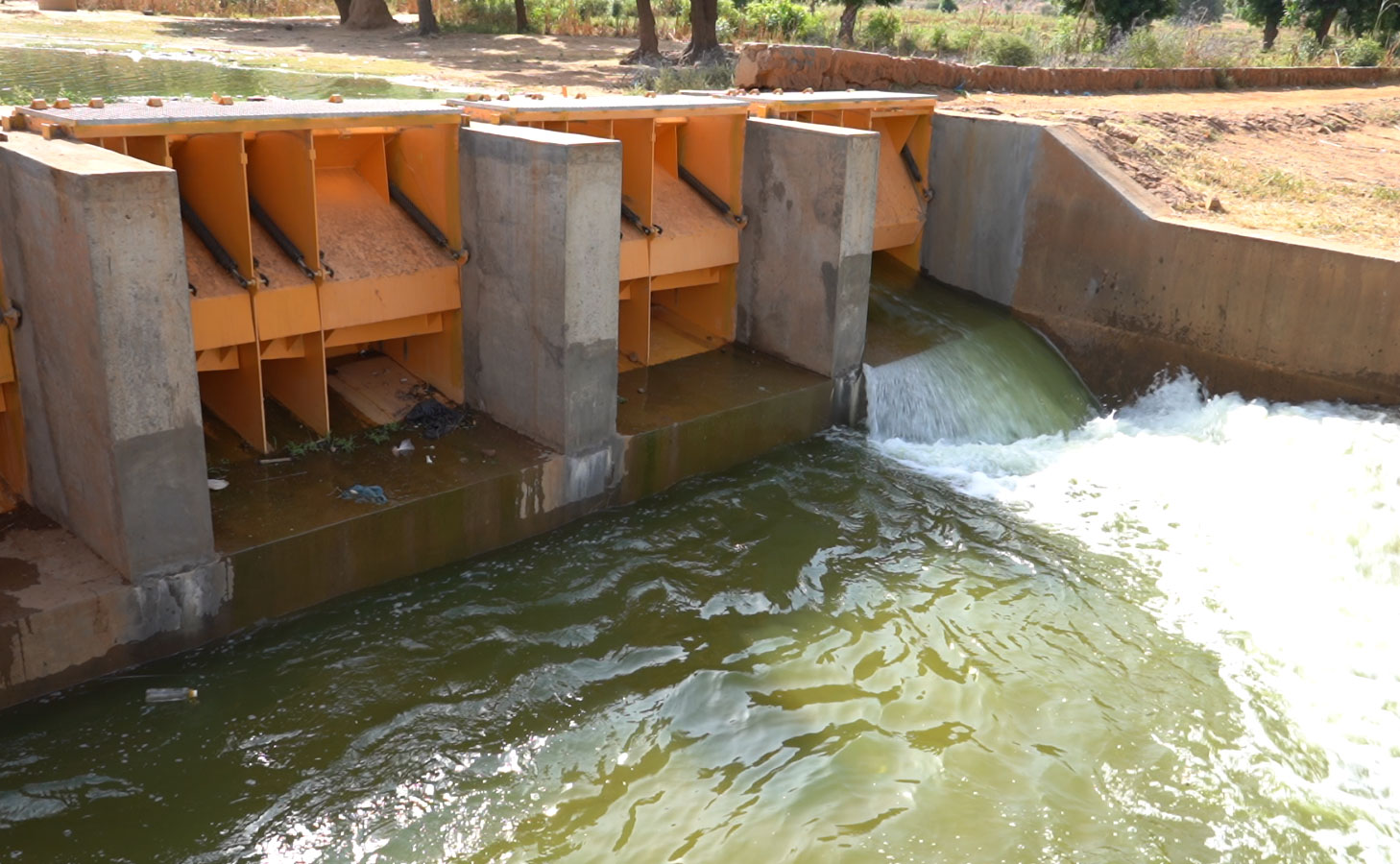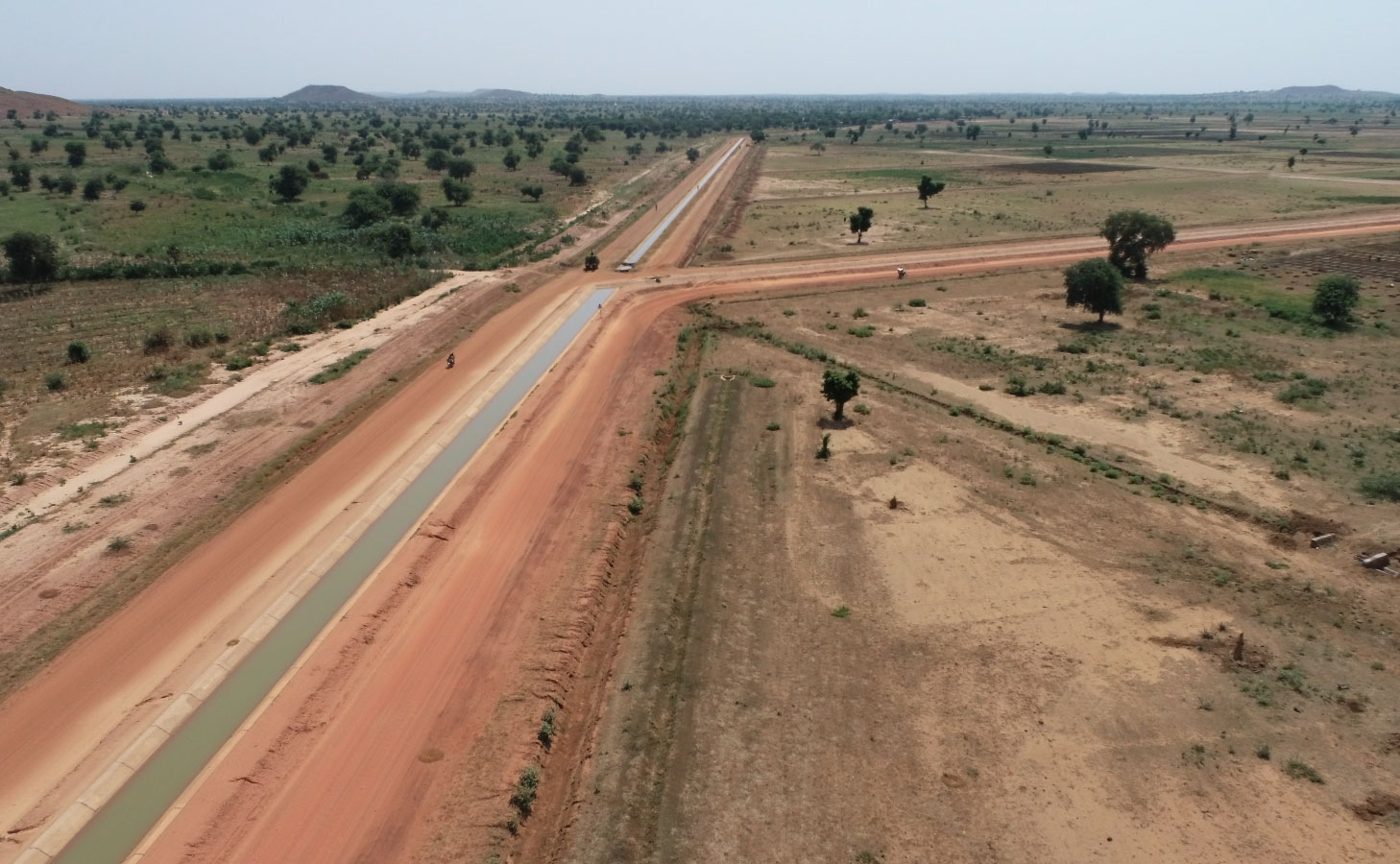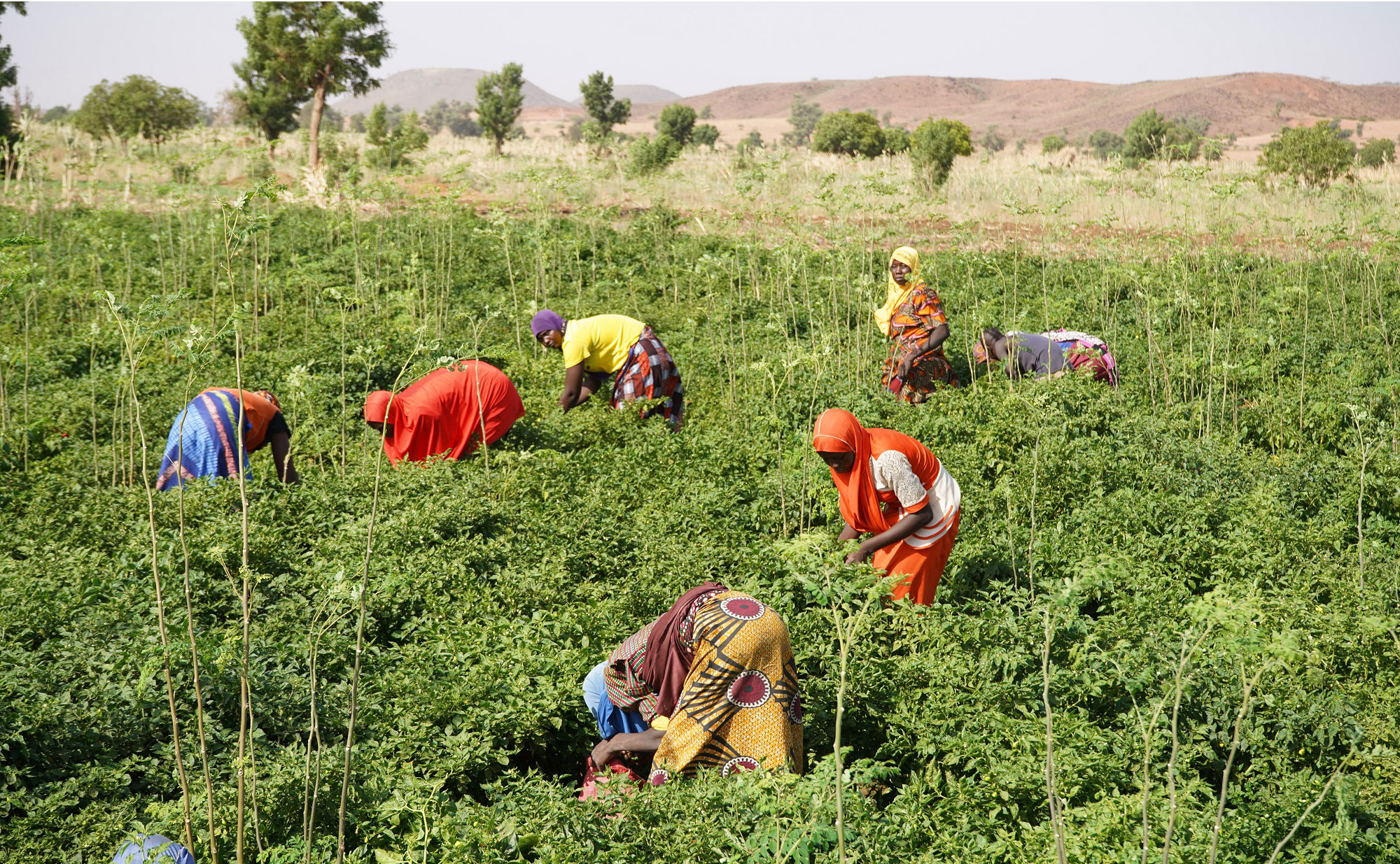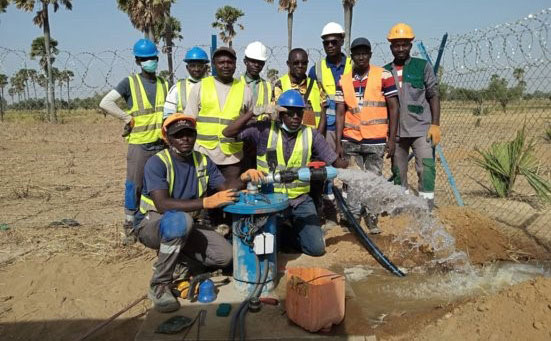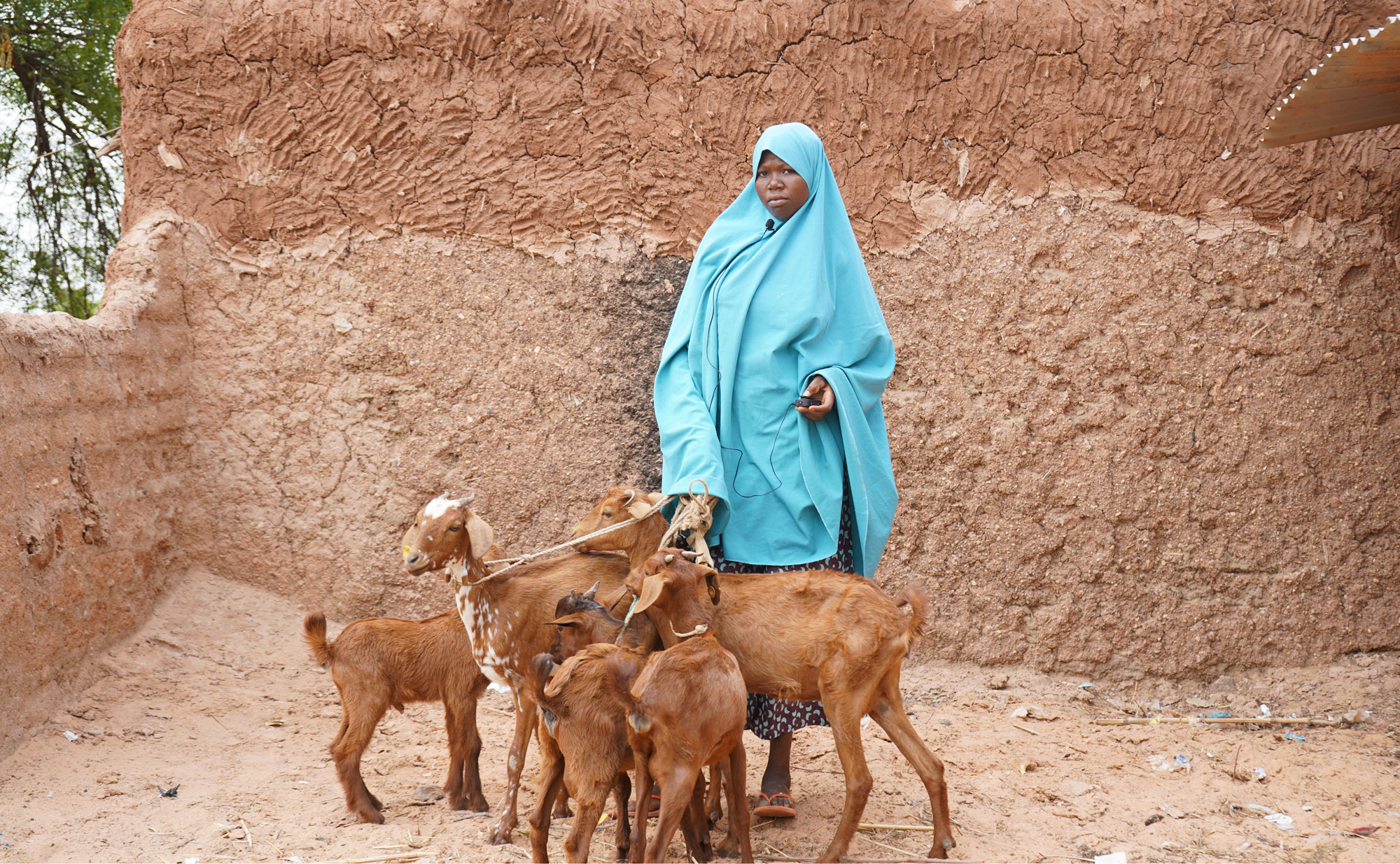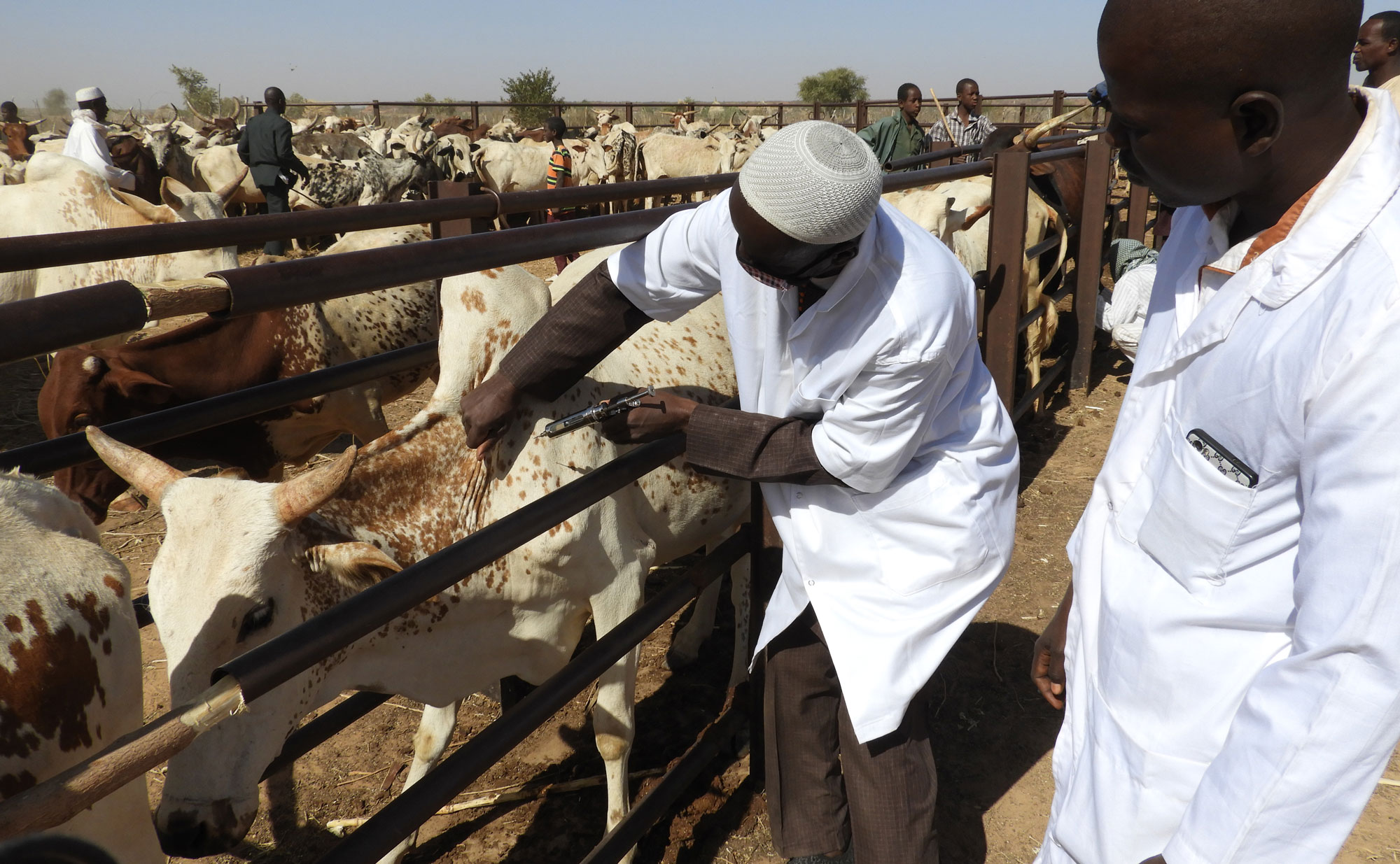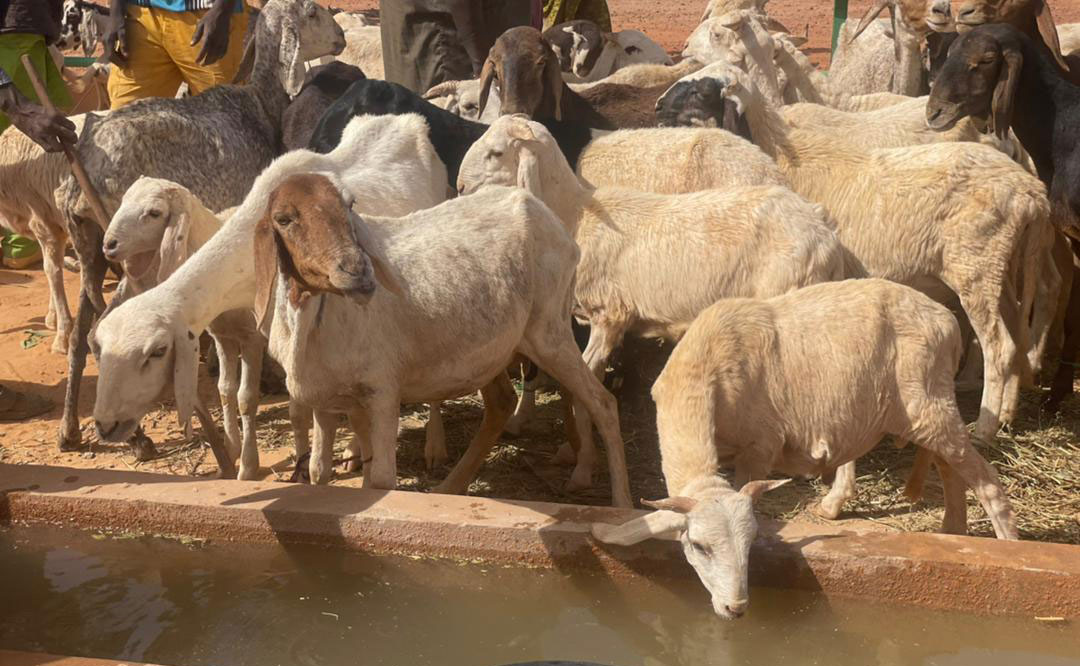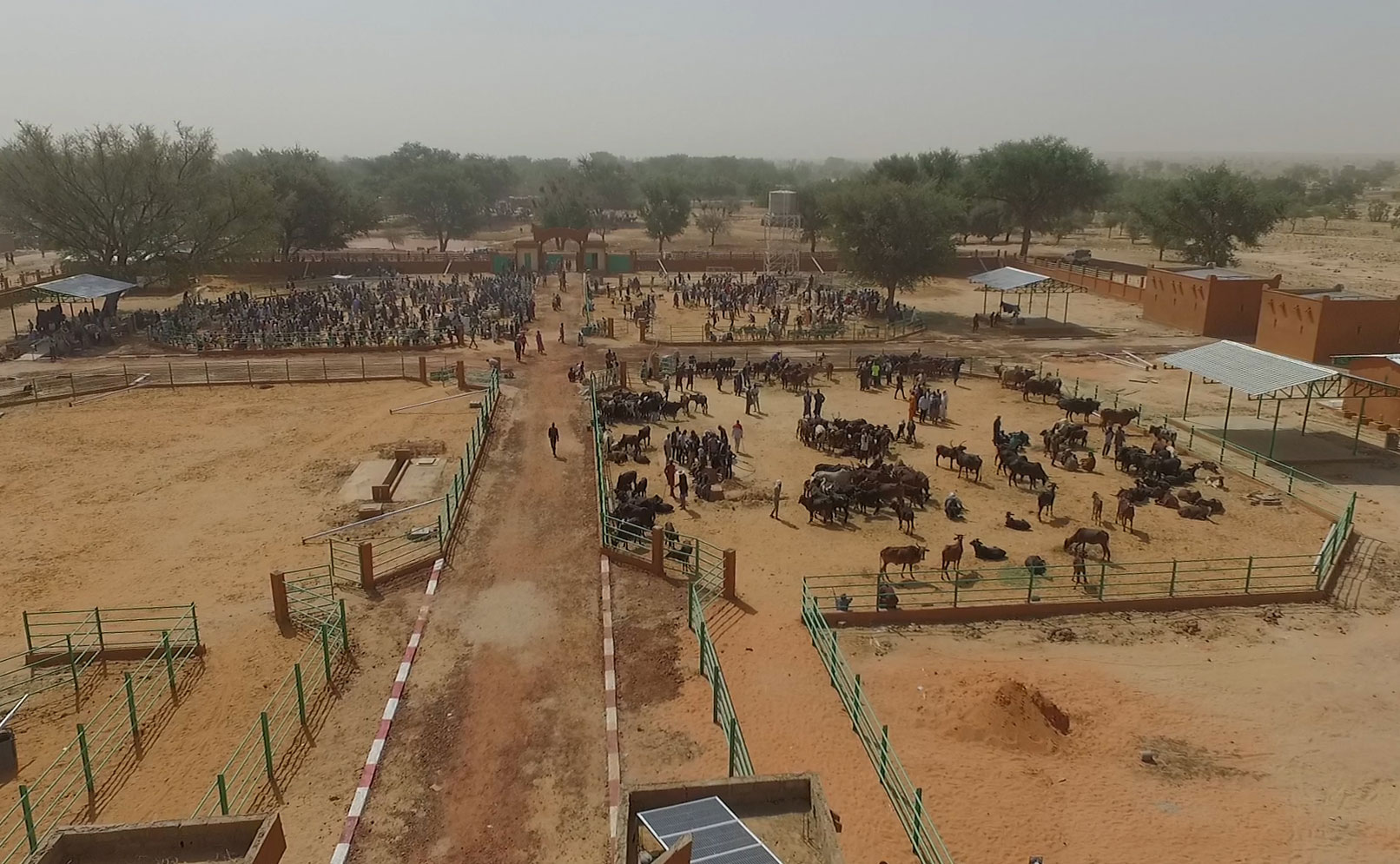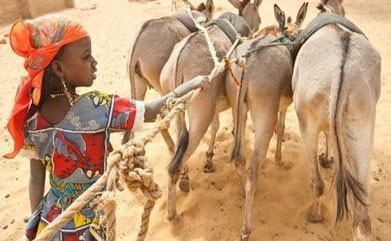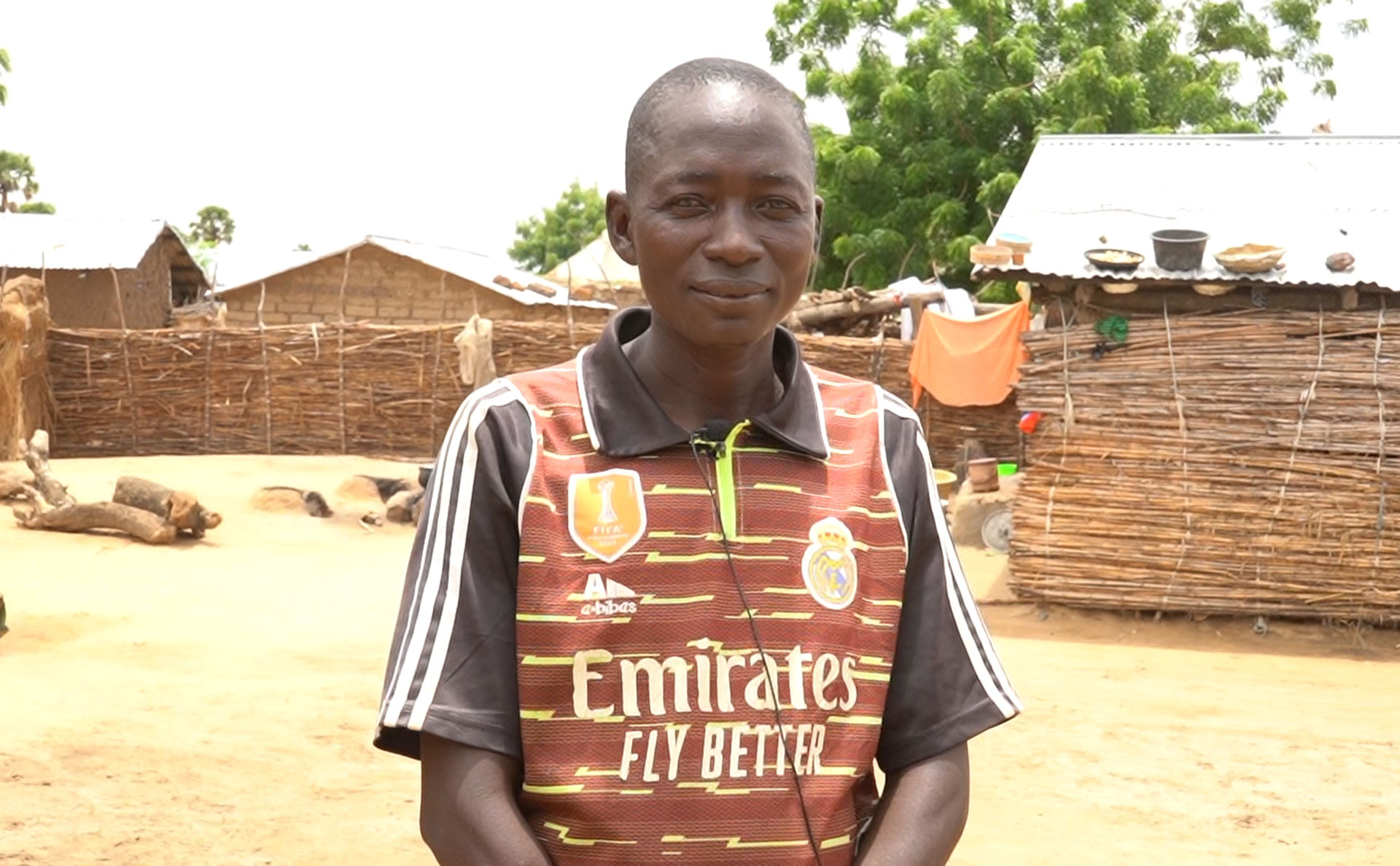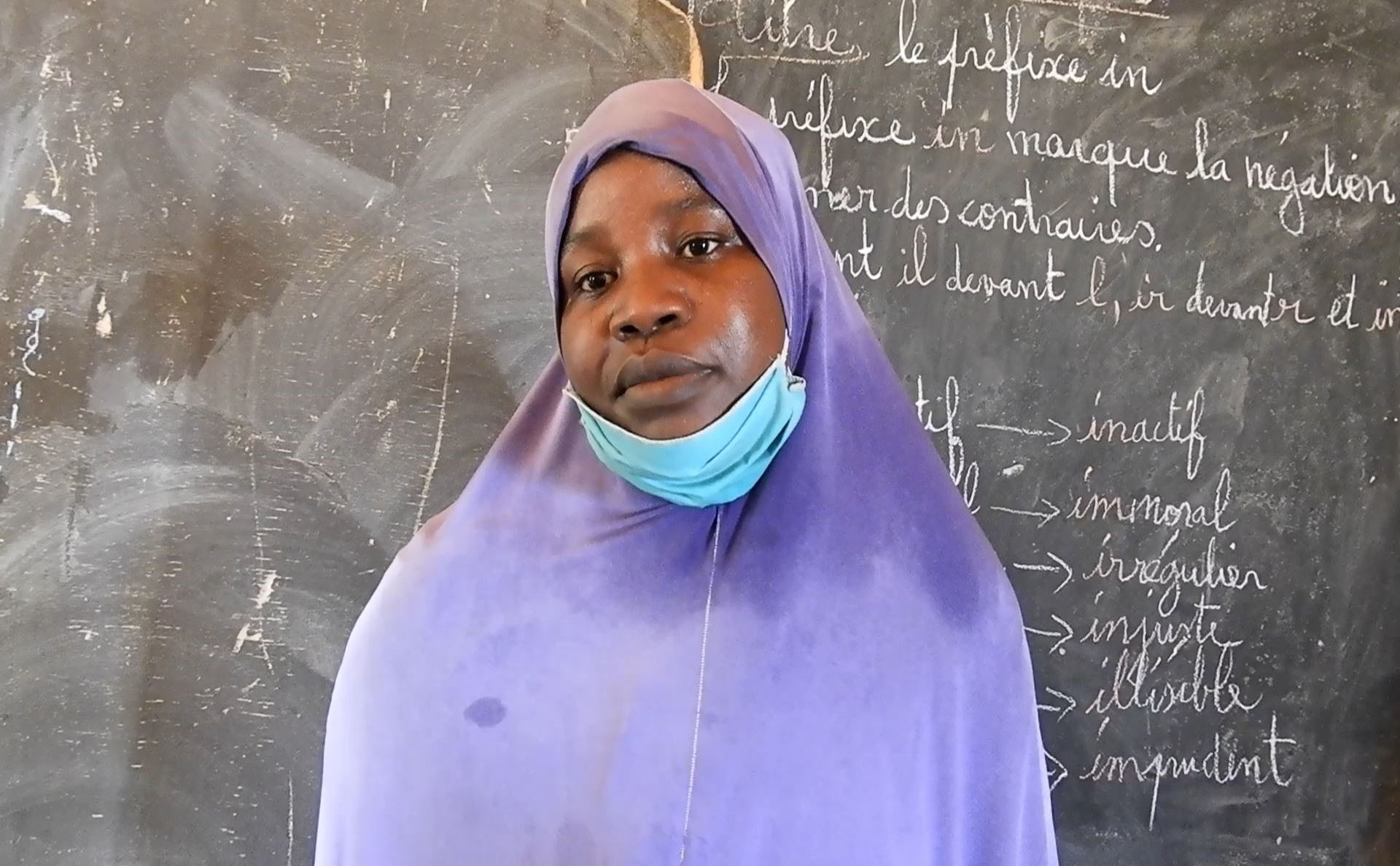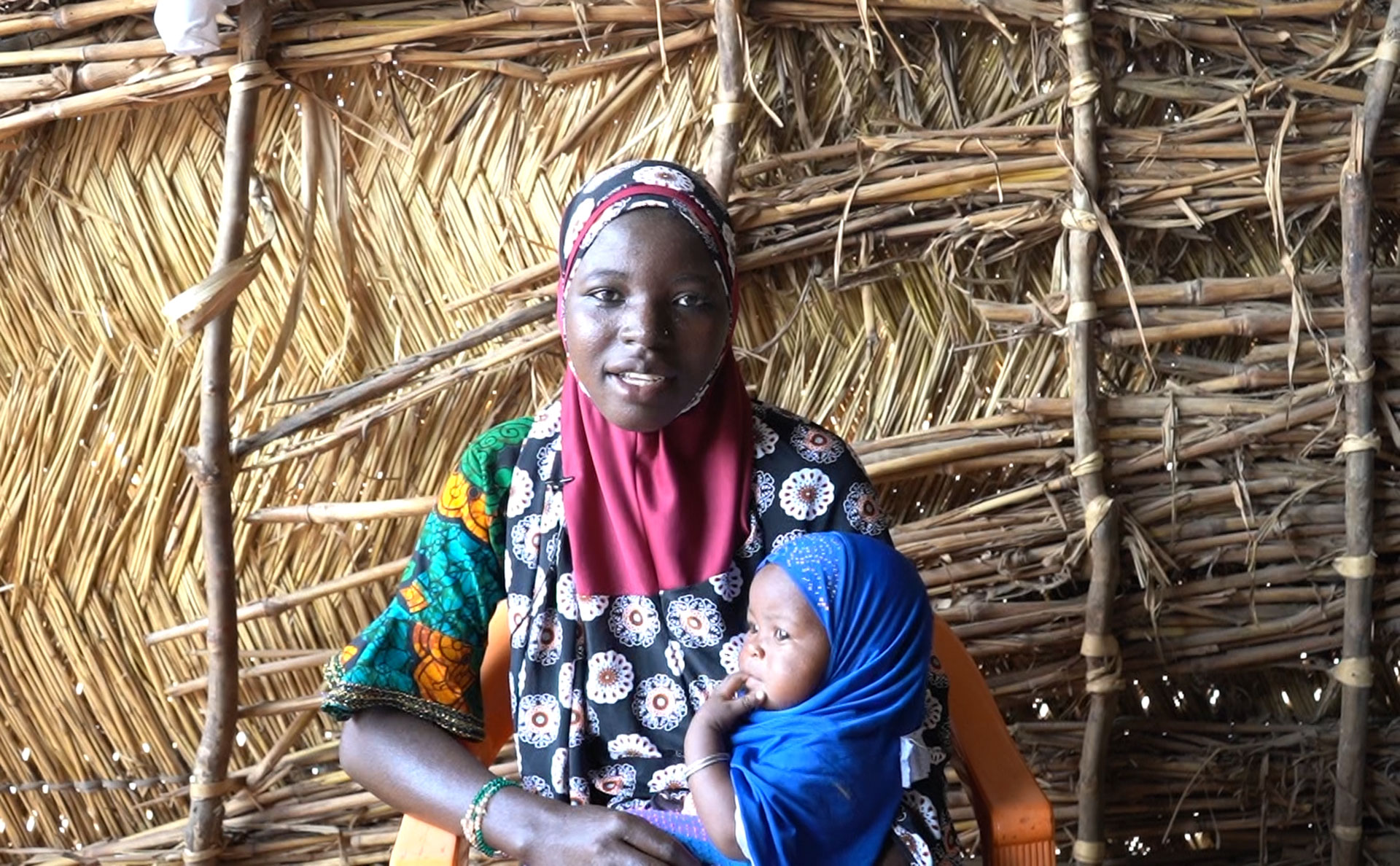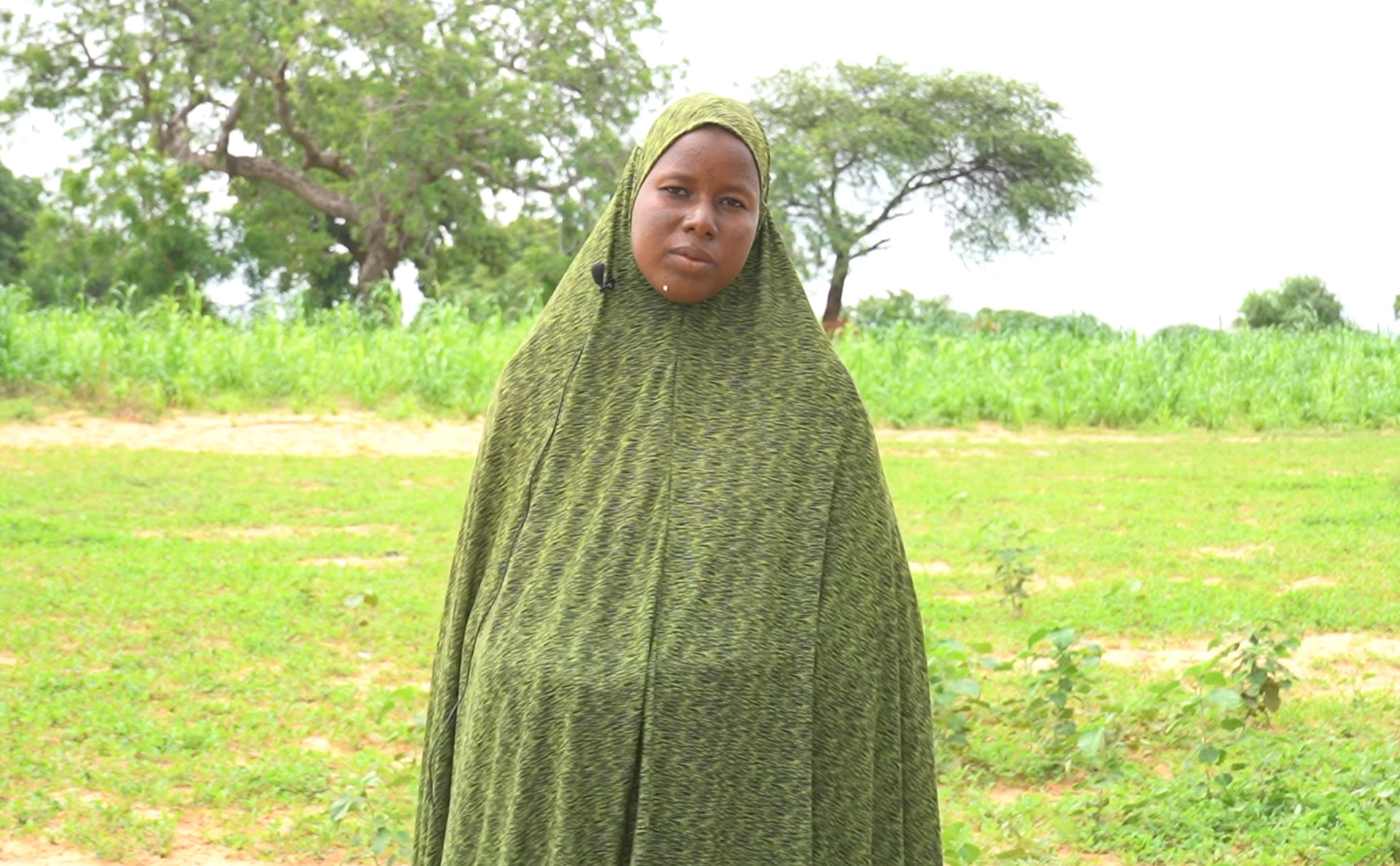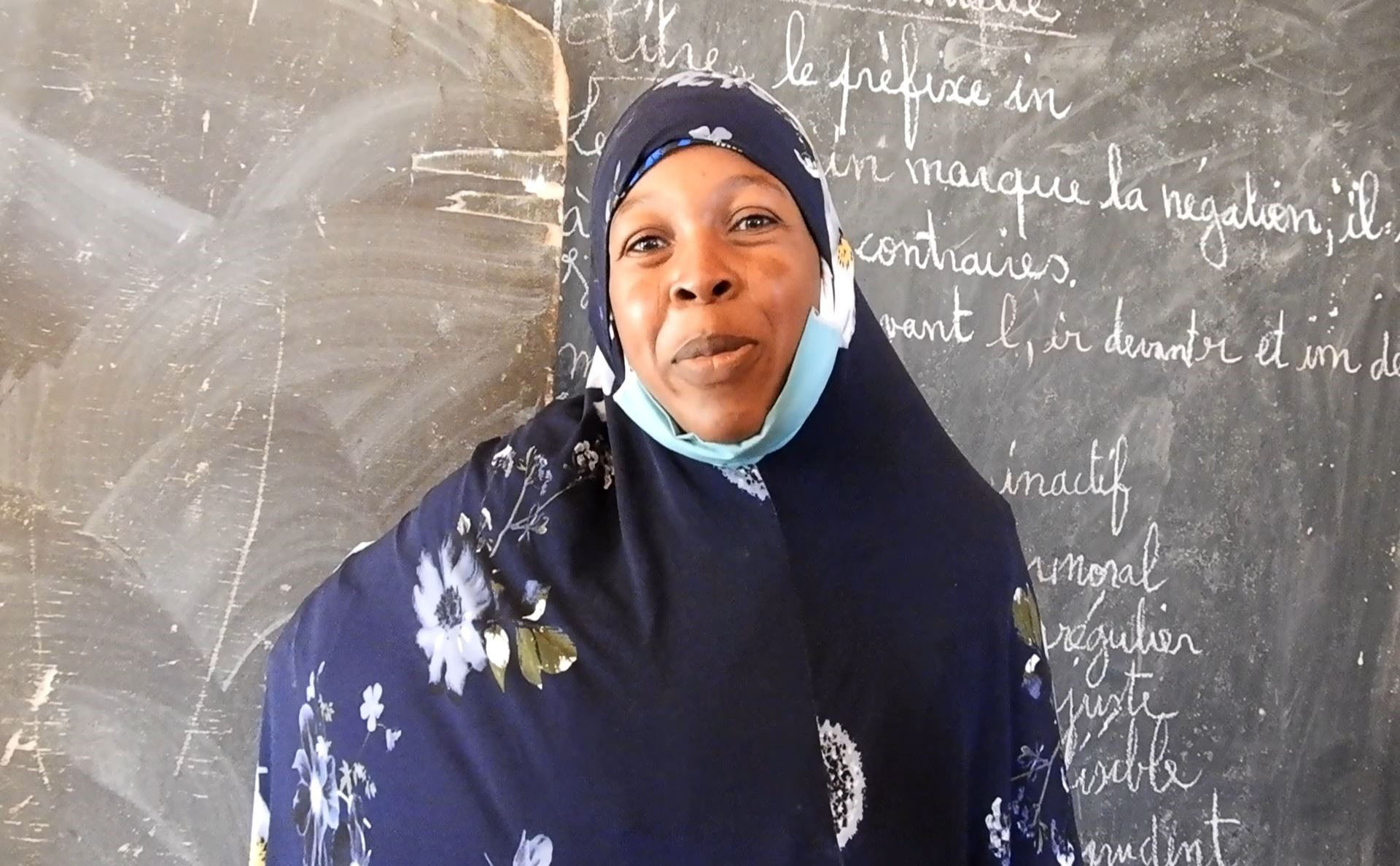Strengthening Niger’s Resiliency

In Niger, a land-locked West African country nearly twice the size of Texas, changes in weather and climate are acutely felt. Nearly eight out of 10 adults are employed in the agricultural sector, yet most are producing only at subsistence levels. Frequent droughts that reduce crop yields can mean devastation for families and their livestock.
In 2018, MCC partnered with the Government of Niger to implement the $442.6 million Niger Compact to strengthen the resiliency of Niger’s agriculture sector at every level – from improving the soil and increasing access to water to enhancing livestock health, expanding access to markets, and strengthening community knowledge for these assets to be carried long into the future.
While the compact was “prematurely suspended” due to a coup d'état in July 2023, the compact ensured that the people of Niger have the tools they need to build a prosperous future. All told, the compact is projected to benefit four million people over the next 20 years.
Resilience = Improving Soil Health
All agricultural growth has to start at the soil, where seeds take hold before becoming crops and food for both humans and animals. This is especially important for grazing lands shared by Niger’s nomadic farmers. Without grass to feed the livestock, nomadic herders move outside these zones coming into conflict with farmers on privatized land or risk the loss of their herd.
Through the MCC-Niger Compact, MCC rehabilitated 100,000 hectares of degraded land through improved water conservation techniques. Hundreds of local women and youth were employed to create 2,000 demi-lunes (half-moons) of land designed to trap rainwater and foster plant growth.
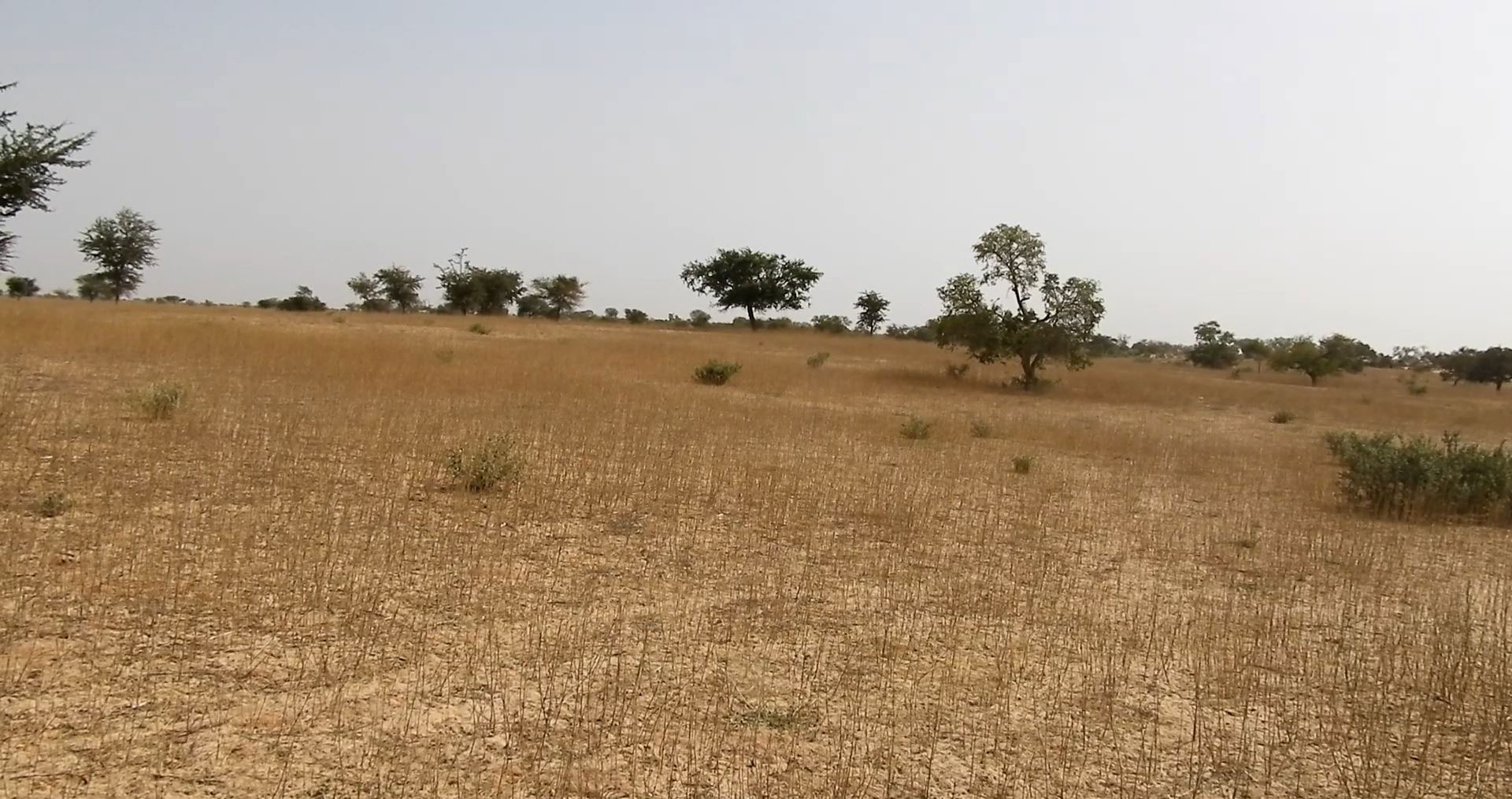
MCA-Niger
Before the MCC-Niger Compact, shared grazing lands were not managed, resulting in dry soil and few crops for animals to eat.
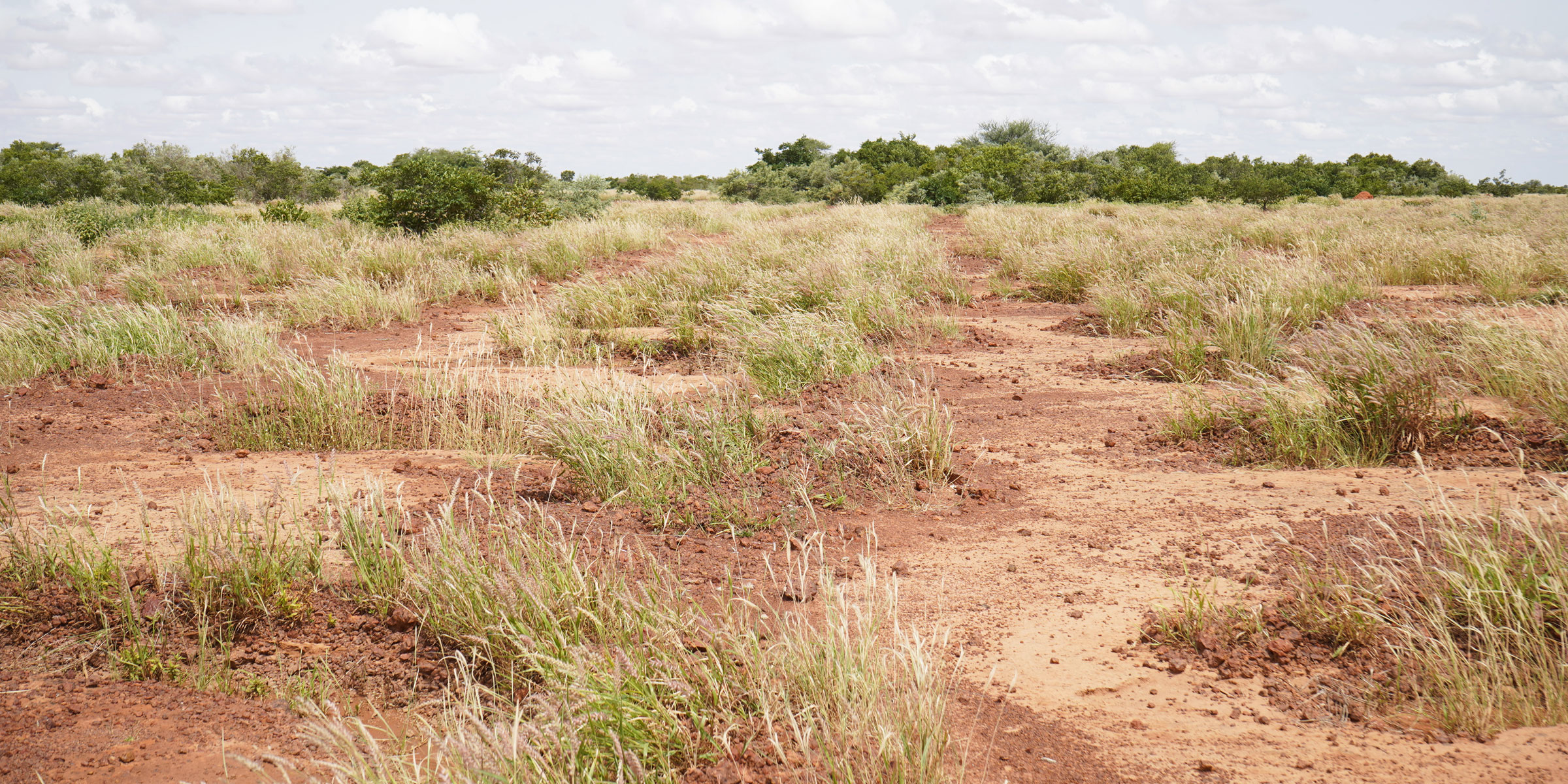
MCA-Niger
Thanks to the MCC-Niger compact, local women and youth were employed to create 2,000 demi-lunes (half-moons) that trap rainwater and have improved plant growth in these corridors.
FEATURED BLOG
-
Learn more about the sustainable practices in natural resource management, soil, and water conservation in the Niger Compact.
For farmers on private land, the timely delivery of fertilizer can significantly enhance crop yields. MCC worked to ensure fertilizer was delivered on time by supporting critical reforms to fertilizer delivery. The result was over 25,000 e-vouchers provided to low-income farmers and a 54 percent increase in national fertilizer imports between 2019-2023, despite rising prices worldwide. The compact’s reforms to the fertilizer sector will ensure that low-income farmers continue to have timely access to fertilizer in the years to come.
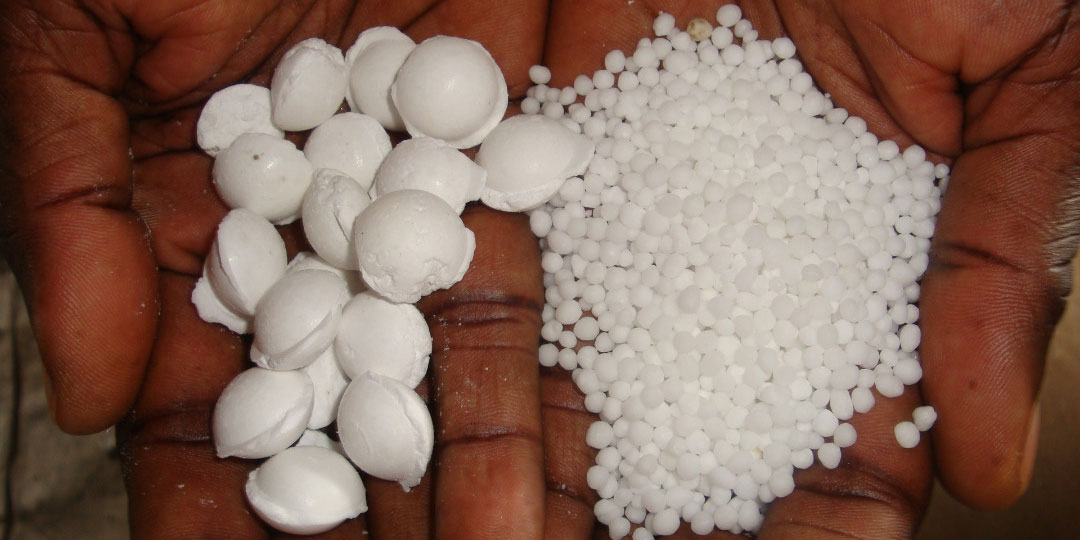
International Fertilizer Development Center
Two types of fertilizer are displayed. The MCC-Niger Compact provided 25,000 e-vouchers to low-income farmers to increase access to fertilizer.
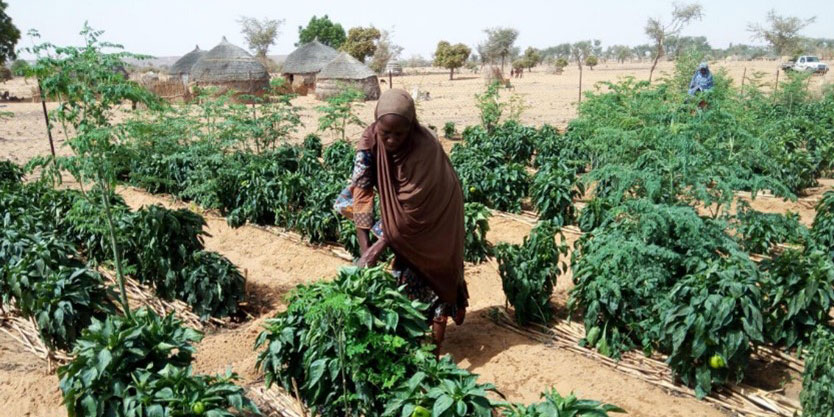
International Fertilizer Development Center
Timely access to fertilizer can make a huge difference in crop yields for farmers in Niger.
Resilience = Increased Access to Water
Ensuring crops can grow requires access to adequate water, but in the Sahel, rain is not always a guarantee. To improve rainwater capture during the rainy season, MCC rehabilitated the Konni irrigation perimeter, the largest in Niger. As a result, 6,000 small-scale farmers now have access to water year-round.
For more rural farms in the southern Dosso area called Sia Kouanza, MCC established 104 solar-powered wells to allow farmers to use small-scale irrigation to grow higher-value horticulture year-round. The wells allow local farmers to tap rich, renewable ground water resources to support options to grow crops and horticulture year-round.
Ensuring Niger’s water can last for generations, requires a careful understanding how much water currently exists, how much is being replenished each year, and ultimately how much can be utilized by the people of Niger each year. Through the MCC-Niger Compact, satellite imagery was used to map Niger’s underground water resources, for the first time in the nation’s history. That analysis revealed that Niger is the most ground-water rich nation in the Sahel. This new information shows that Niger has the potential to irrigate several million hectares, ensuring even more farmers have access to water year-round.
Ensuring Niger’s water can last for generations, requires a careful understanding how much water currently exists, how much is being replenished each year, and ultimately how much can be utilized by the people of Niger each year. Through the MCC-Niger Compact, satellite imagery was used to map Niger’s underground water resources, for the first time in the nation’s history. That analysis revealed that Niger is the most ground-water rich nation in the Sahel. This new information shows that Niger has the potential to irrigate several million hectares, ensuring even more farmers have access to water year-round.
FEATURED BLOGS
-
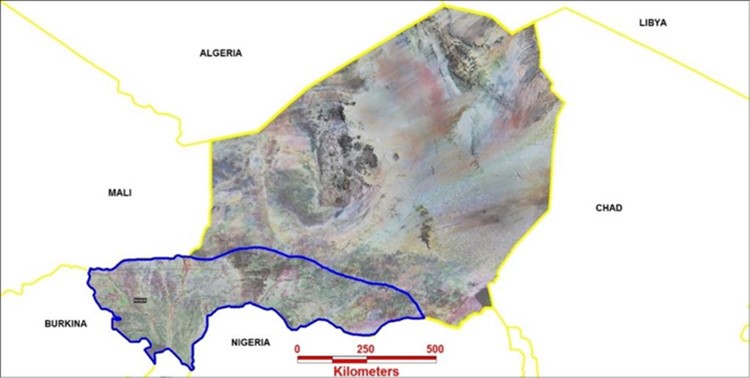
Learn how a groundbreaking discovery helps rural communities in Niger tackle food insecurity.
-
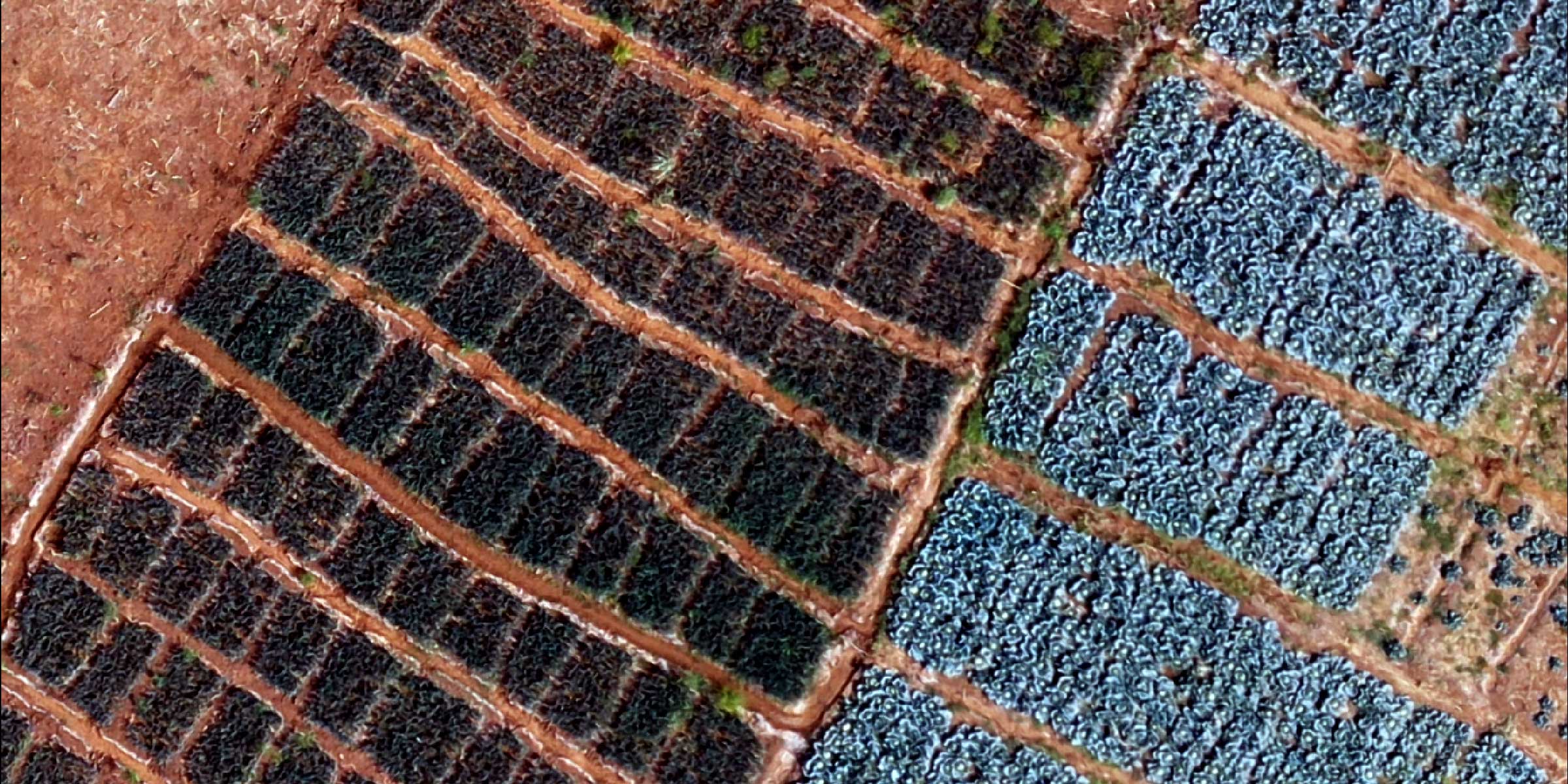
Read how remote sensing is enhancing MCC's ability to monitor and evaluate its programs around the world, starting with Niger.
Resilience = Supporting Animal Health and Safety
Healthy livestock are a key component to many of Niger’s farming families, who rely on animals such as cattle, camels and goats to help till the land, transport goods to markets for sale, and as a source of food for their own families, and for sale or trade. And healthier livestock means herds can grow over time, providing economic stability and generating increased income for these families.
The Niger Compact helped farmers with existing livestock to improve the health and productivity of their animals through public vaccination campaigns, and it also aided families by providing 6,432 goats to over 1,600 farmers (four goats per farmer) as assets to help break the grip of chronic poverty and to help restore grazing lands by feeding on invasive species. The compact ensured the sustainability of its investments by providing crop and livestock productivity training to over 22,400 agricultural producers.
The compact also modernized 14 key livestock markets, which aimed to improve livestock safety and public safety through the construction of corrals, shaded areas, water access, and public pathways. Previous markets were more informal and offered little water and no formal structures for livestock, putting both the public and animals at risk. These markets are located across four regions in Niger, and MCC expects that they will improve the flow of live animals sold into local markets and exported throughout the region.
Resilience = Increasing Access to Markets
Agricultural development is critically dependent on safe and reliable roads that provide access between rural areas and markets where food, livestock and goods can be bought and sold. Investments in the improvement of roads can advance economic and social opportunities, from increasing incomes for farmers and their families, to improved access to healthcare and schools.
Thanks to 300 kilometer (186 miles) of rehabilitated roads built by the compact, access to Niger’s markets will be easier for farmers once crops and livestock are ready for market. The six-hour trip between Gaya and Dosso on the RN7 national road now takes only two hours with the improved roads, reducing the risk of perishable crops becoming spoiled during transit. The new roads are also thicker than the previous road and able to withstand increasingly hot temperatures and heavy traffic. These roads will be maintained for future generations through, a performance-based road maintenance program established under the compact.
The compact also ensured women could participate in the improved market access by providing specialty training, like how to raise chickens or cultivate honey, to 215 women living along the RN7.
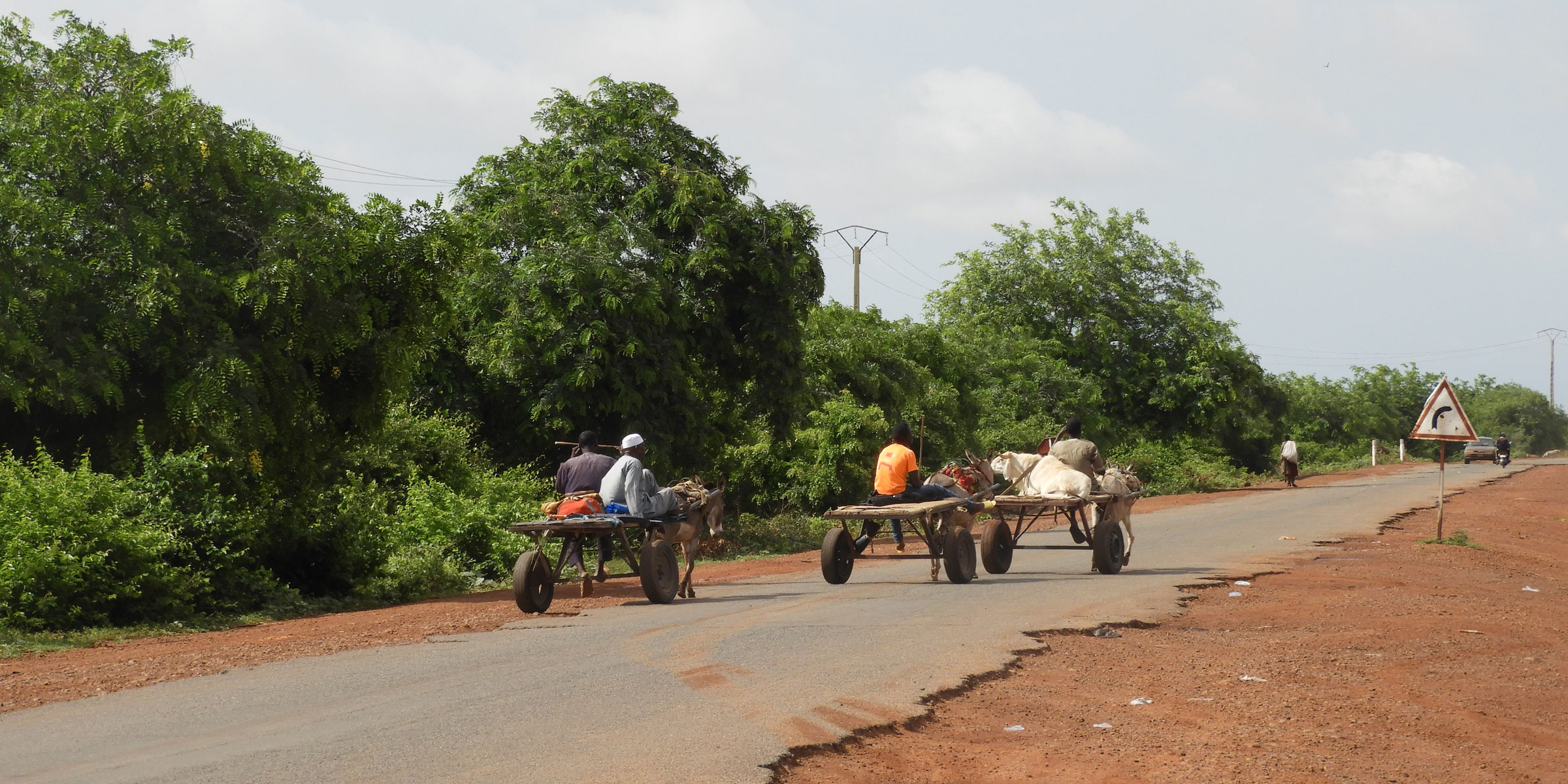
MCA-Niger
Before the MCC-Niger Compact, taking the RN7 road between Dosso and Gaya took 6 hours.
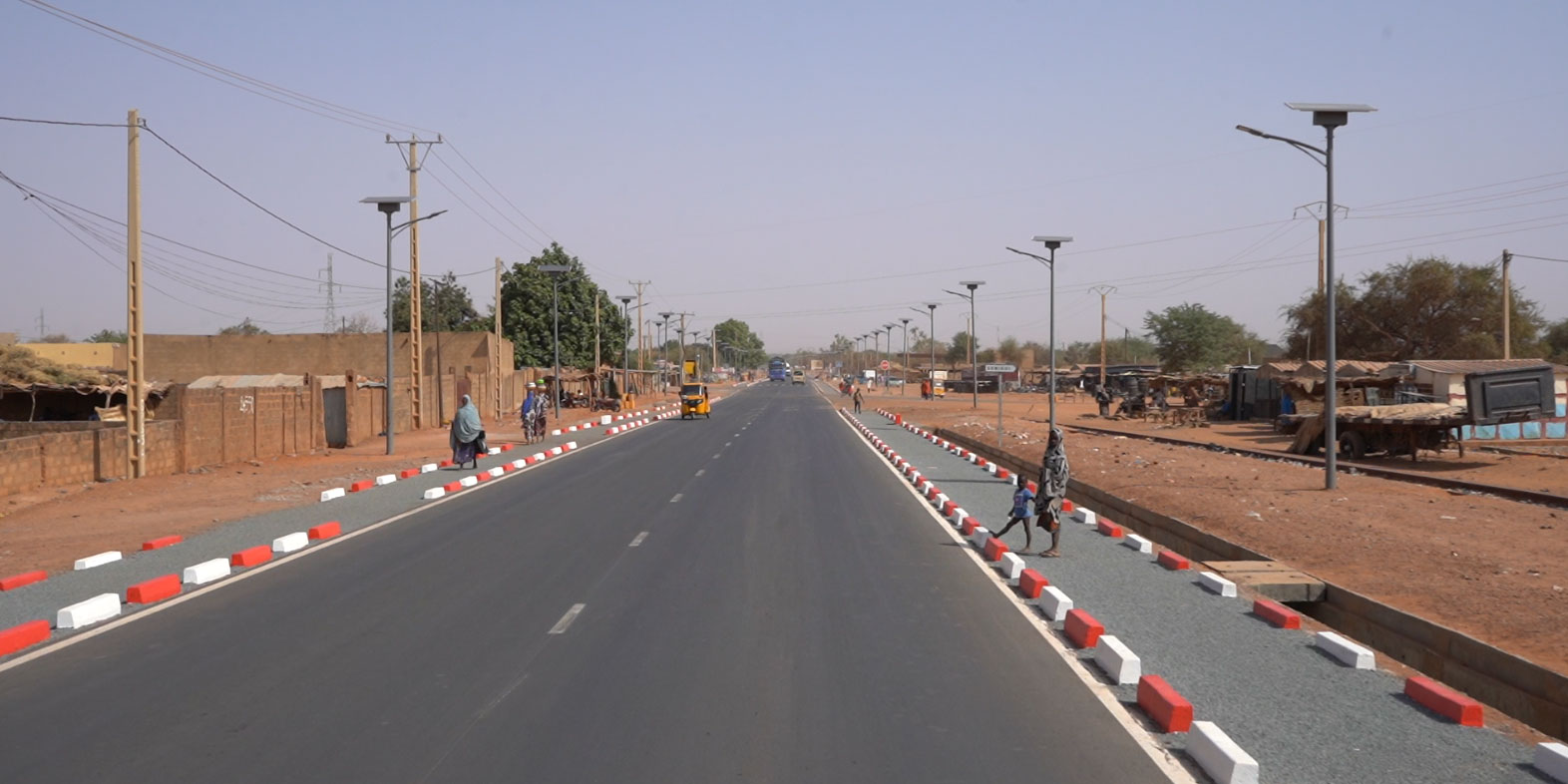
MCA-Niger
Today, after the MCC-Niger Compact, taking the RN7 road between Dosso and Gaya takes only 2 hours.
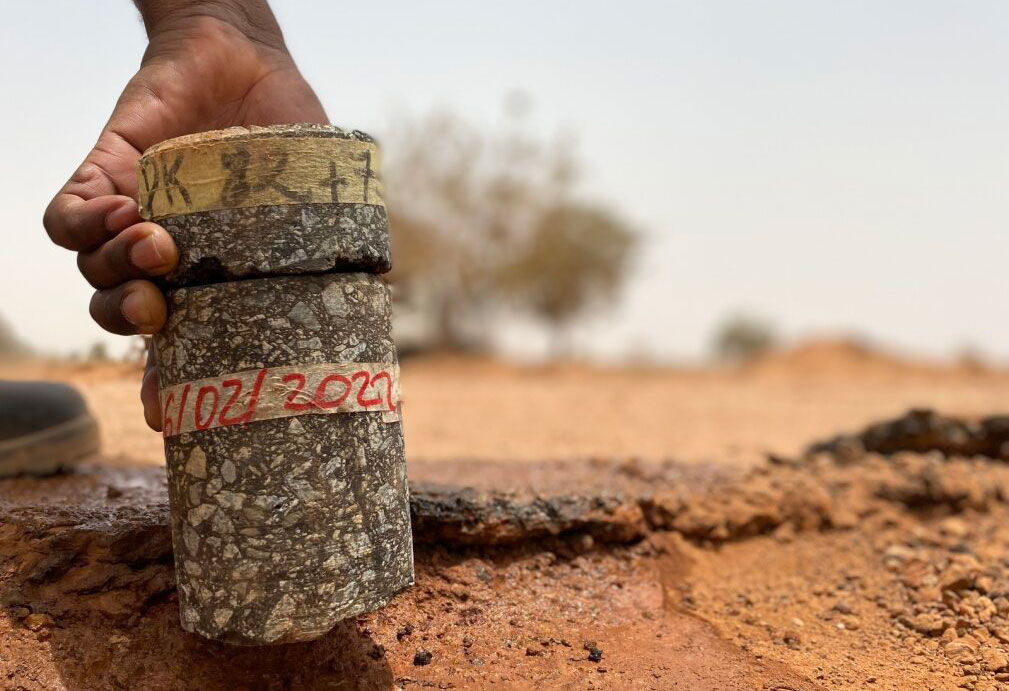
MCA-Niger
The pavement used to pave the roads in the MCC-Niger compact are 14 cm thicker than the previous pavement, to help support heavy truckloads and rising temperatures.
FEATURED BLOG
-
The MCA-Niger Compact reached a milestone as construction to rehabilitate a key section of the RN7 was launched.
Resilience = Investing in People for Sustainability
In Niger, where the agricultural sector employs 8 out of 10 people, it is estimated that if the gender gap was closed in agricultural productivity, it would unlock financial gains that could lift over 25,000 Nigeriens out of poverty. To support this goal, $7.5 million in grants have been awarded to 85 agriculture businesses, more than half of which were youth- or women-led. These grants are expected to benefit 23,563 people across Niger. For example, Anfani de Koulou Koira, a collective of 40 women paddy rice processors, increased their production three-fold thanks to a grant from the compact.
FEATURED BLOG:
-
As part of the compact between MCC and the Government of Niger, $2.3 million in grants were awarded to producer/processor groups and micro, small, and medium-sized enterprises, including women and youth groups.
The compact also trained over 6,000 people – 52 percent of whom were women – in literacy and basic numeracy, to allow people to continue to learn new agriculture techniques and adjust their pricing models, long after the compact’s completion. Many participants reported that thanks to the training program, they know for the first time whether their businesses are making money and how they can maximize profits. Others reported that the program has had an impact on the efficiency and effectiveness of their cooperatives, as they now are able to take notes of meetings and keep records of actions needed and issues addressed.
A Resilient Future for Niger
MCC is proud to have partnered with the Nigerien people to strengthen the agriculture sector in a way that ensures all Nigeriens can benefit. Together we have built a foundation for a sustainable future that is ready to navigate the changing climate of the Sahel.


